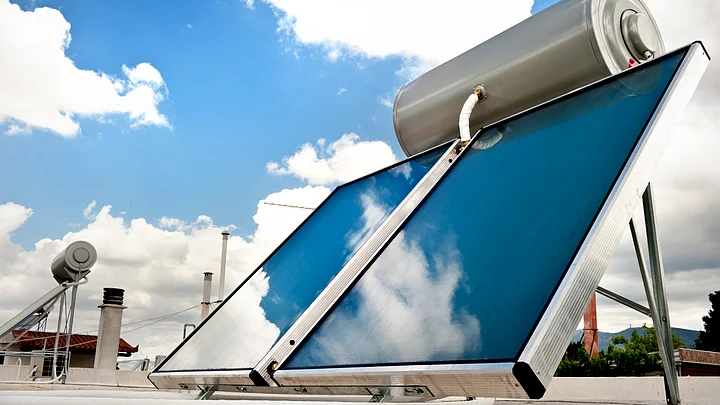Climate experts agree that if there’s any hope of limiting climate change and tackling air pollution, then we need to move away from fossil fuels – and fast. But considering that the global economy is totally dependent on fossil fuels for everything from electricity, to food production and transportation, to the plastics we have in our home appliances, peeling ourselves away from fossil fuels has proven to be a rather painful process.
Part of the transition to renewable energy requires new policies, which governments around the world are working on. This week, the Delhi government approved a new policy that will make it easier to develop rooftop solar projects in the capital.
Through this policy, Chief Minister Arvind Kejriwal said 2 gigawatts of solar power would be produced by 2025, which is about 7 percent of energy consumed. This would lessen the city’s need for fossil fuels.
This policy, which is very progressive, will help in providing clean and green energy. Rooftop solar systems offer sustainable energy, environmental benefits, low gestation period and minimum transmission and distribution losses.Arvind Kejriwal, Delhi Chief Minister
Climate change is exacerbated by the release of fossil fuels into the atmosphere, and renewable energy could cut down the demand for it. But because the economy is inextricably linked to fossil fuels, it can be harder and more expensive to opt for renewables. That’s where policies and smart planning come in.
Rooftop solar panels are one of the most viable renewable energy solutions for a city like Delhi. Every year, there are 300 sunny days and there is ample space on Delhi’s roofs.
Solar energy also has the benefit of being more affordable. The panel prices have dropped by 75 percent in the last six years.
The good thing about solar power is that you can generate it from anywhere.Aruna Kumarankandath, Renewable Energy Programme Officer, Centre for Science and Environment
Under the new policy, all government buildings will install solar panels on their roofs in the next five years.
Tax breaks will be given for electricity generated by solar power, and buildings will not have to seek approval from government bodies like the Delhi Development Authority.
People who rent apartments will also be able to take part in this development through “virtual metering” where they can become collective owners of a solar power system in another part of the city.
In general it’s mostly positive. [The government] seems to be ambitious. There will be a need to have more incentives and public awareness. The government will need to be proactive. But it’s a good start.Jasmeet Khurana, Senior Manager, Bridge to India
Still, in a country with an economy growing at more than 7 percent per year, renewable energy just isn’t going to cut it, experts say. Fossil fuels are an integral part of industrial development since existing technology is either too expensive or not available.
Solar power cannot meet incremental demand on its own. Coal will remain the dominant fuel in the foreseeable future.Jasmeet Khurana, Senior Manager, Bridge to India
And as coal consumption grows, so will the country’s carbon emissions – even if part of those emissions are offset by a rapid increase in solar power.
